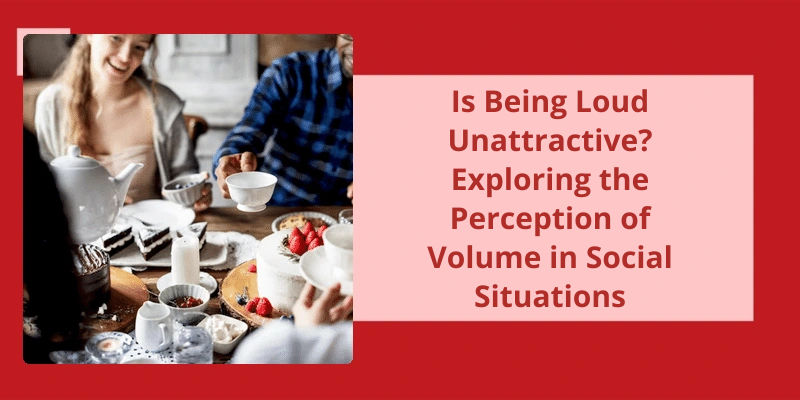Having a good conversationalist skill is both an art and a science in itself. While some people are naturally talented in keeping the conversation going, others may require more effort and practice. The ability to talk non-stop can have it’s advantages, such as impressing your employer or engaging with your friends at social gatherings. However, ensuring that you don’t come off as monotonous or dominating can pose challenges. It’s crucial to strike a balance between expressing yourself and giving others an opportunity to participate in the conversation. By asking questions, listening actively to responses, and avoiding interrupting others, you can maintain a healthy flow of dialogue and make an excellent impression on the people around you. In this article, we will explore ways on how to talk non-stop without being overbearing or boring.
How Can People Talk Nonstop?
Compulsive talking can be a frustrating and difficult experience, both for the individual themselves and for those around them. People who struggle with this issue may find it challenging to hold down jobs, maintain relationships, or engage in social activities. They may feel overwhelmed by their own thoughts, or unable to process their emotions effectively.
Individuals who experience high levels of anxiety may feel the need to keep talking in order to distract themselves from their worries. They may also feel that talking helps them to connect with others and feel less isolated. However, this can lead to a pattern of constant chatter that can be difficult to break.
Drugs and alcohol can impact the brain in ways that make it difficult to control impulses and regulate emotions. This can lead to a pattern of compulsive behavior, including talking excessively.
Additionally, individuals with ADHD may be more prone to compulsive talking. ADHD is a neurodevelopmental disorder that affects the brains ability to regulate attention, activity, and impulsivity. People with ADHD may find it difficult to “switch off” their thoughts or impulses, leading to a pattern of nonstop talking.
However, there are several strategies that may be helpful. These include practicing mindfulness and relaxation techniques, such as meditation or deep breathing. It may also be helpful to seek counseling or therapy to explore underlying issues and develop coping mechanisms. Additionally, individuals with compulsive talking may benefit from medications or other interventions that can help to regulate mood and improve impulse control.
Whether caused by anxiety, substance abuse, ADHD, or other factors, it can be difficult to overcome without support and guidance. However, with the right tools and strategies, it’s possible to break the cycle of nonstop talking and regain control over ones thoughts and behavior.
If you’ve ever struggled to get a word in edgewise with a non-stop talker, you’re not alone. Whether it’s a friend, family member, colleague, or even a stranger, dealing with someone who dominates the conversation can be frustrating and exhausting. But how can you put an end to it without causing offense or coming across as rude? Here are five tips that can help you navigate the situation with grace and assertiveness.
How Do You Stop a Non Stop Talker?
Being stuck in a conversation with a non-stop talker can be a frustrating and draining experience. It can feel like they’re taking up all the air in the room and refusing to give anyone else a chance to speak. However, there are ways to put a stop to their incessant chatter without being rude or hurtful. One of the most effective techniques is to set a clear time limit for the conversation. This can be done either explicitly or implicitly – for example, by mentioning that you only have a few minutes to chat before you need to leave. Most non-stop talkers will respect your boundaries if you state them clearly.
If setting boundaries or actively listening doesn’t work, don’t be afraid to be assertive. You’ve the right to control the conversation and set limits on how much you’re willing to listen. This doesn’t mean you’ve to be rude or confrontational, but rather that you should calmly and firmly enforce your boundaries. For example, if the non-stop talker interrupts you or talks over you, politely ask them to let you finish speaking before they continue.
Taking time away for yourself can also be helpful when dealing with a non-stop talker. If possible, excuse yourself from the conversation for a few minutes to recharge and collect your thoughts. This can help you stay calm and composed, even if the other person continues to talk excessively.
Finally, it’s important to treat non-stop talkers with kindness and respect. Remember that they may be unaware of how their behavior is affecting others, and that they’re likely just trying to express themselves. By setting boundaries and making them feel heard, you can help them communicate more effectively and create a more comfortable conversation for everyone involved.
Understanding the Root Cause of Non-Stop Talking and How to Address It
This article discusses the reasons behind excessive talking and provides tips for addressing the issue.
Understanding the reasons behind someone’s tendency to talk continuously can lead to more effective communication and social interactions. It’s important to remember that everyone has different communication styles and needs, and finding a balance that works for everyone is key. Let’s dive deeper into the psychology behind excessive talking and how to navigate these situations.
Why Do Some People Talk Continuously?
Individuals who talk continuously often don’t realize that they’re monopolizing the conversation. They may be oblivious to nonverbal cues such as eye rolling or looking away from them. Alternatively, they may not have learned how to listen effectively or how to read nonverbal cues. Additionally, some people may talk excessively as a way to cope with anxiety or nervousness. Rather than dealing with their emotions in a healthy manner, they use talking as a way to release their energy.
Another possibility is that these individuals may feel a sense of social pressure to keep the conversation going. Social norms dictate that a conversation shouldn’t be awkward or have lulls in it, which can lead some people to talk excessively. This can be compounded in large groups where people may believe they need to be heard over the noise. They may feel like they must continue to talk to fill the space and maintain social status.
There’s also the possibility that hyper-talkers have a deeper underlying need for attention or validation. They may feel that they must constantly talk about themselves or their experiences to get others to notice and validate them. This need for validation can stem from a variety of sources, including childhood experiences, low self-esteem, or a lack of fulfilling relationships.
Whatever the reason may be, excessive talking can have negative consequences on relationships. People who monopolize conversations may be perceived as self-centered or uninterested in other peoples opinions or thoughts. They may also be seen as inconsiderate and lacking social skills. These perceptions can cause people to avoid those who talk excessively, leading to further feelings of isolation and loneliness.
Overall, excessive talking is a complex behavior that can be rooted in a range of underlying factors. While it’s important to identify the reasons for the behavior, it’s equally vital to develop effective communication skills and awareness of social cues. With time, effort, and practice, individuals can learn to become more effective communicators and listeners, fostering stronger relationships and social connections.
The Impact of Excessive Talking on Mental Health and Well-Being
- Excessive talking can lead to increased stress and anxiety for both the speaker and listener.
- People who talk excessively may struggle with self-control and may have difficulty focusing on tasks.
- Long-term chronic talking can also lead to physical symptoms such as headaches and fatigue.
- It’s important to set boundaries and communicate respectfully with those who talk excessively.
- Individuals who struggle with excessive talking may benefit from therapy or support groups to address underlying mental health issues.
Many of us may have encountered people who just don’t seem to stop talking, often going off on tangents or dominating conversations. This behavior is known as compulsive talking or talkaholism, and it can be exhausting for those around the individual. But what causes someone to talk excessively, and is it a problem that can be managed? Let’s dive deeper into the phenomenon of compulsive talking.
What Is It Called When You Talk Non Stop?
It’s a behavioral disorder that’s commonly seen in individuals who’ve difficulty controlling the urge to speak, even when it isn’t appropriate or necessary. People with this condition often talk excessively, interrupt others, and dominate conversations, even when they don’t have anything of value to add.
Compulsive talking can stem from a variety of different psychological, social, and environmental factors. Some people with this condition may have a history of trauma or abuse, while others may have a genetic predisposition to compulsive behavior. Additionally, individuals who’re anxious, depressed, or socially isolated may be more likely to turn to excessive talking as a coping mechanism.
Individuals with this condition may struggle to maintain meaningful connections with others, as they may not be able to listen and respond appropriately to social cues.
Treatment for compulsive talking typically involves cognitive-behavioral therapy (CBT), which helps individuals identify and control the thoughts and behaviors that contribute to their excessive talking. In some cases, medication may also be prescribed to address underlying anxiety or depression.
Ultimately, it’s important for individuals with compulsive talking to seek help and support. With the right treatment and resources, it’s possible to overcome this challenging condition and achieve a healthier, more fulfilling life.
Conclusion
However, it’s important to remember that effective communication involves a balance of talking and listening. One can maintain this balance by asking questions, actively listening when others speak, and avoiding interrupting or cutting in. By doing so, people can have meaningful conversations that foster understanding, build relationships, and lead to positive outcomes. Ultimately, the key to talking non stop lies not only in knowing what to say, but also in knowing when to listen.






